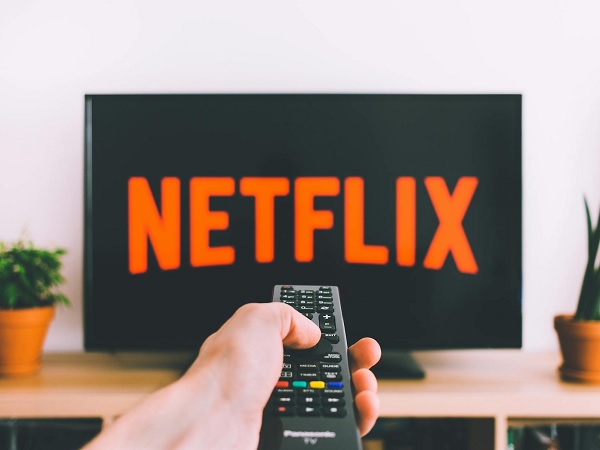If you’re a film fan, then you’ll no doubt have noticed Hollywood is currently experiencing a bit of a problem at the moment. Each week studios are sending their new releases to the cinema, and each week we are seeing reports about how these movies are struggling at the box-office.
This week it was Furiosa: A Mad Max Saga which struggled during its opening weekend, while two weeks ago it was The Fall Guy that was having problems getting bums on seats. Meanwhile, horror movie Abigail, which was released in April, did OK but nothing particularly spectacular, and other films are experiencing similar troubles.
And what do all these movies have in common, other than their problems at the box-office? They all received positive reviews.
Yep, positively reviewed movies, likely to entertain and/or appeal to mass audiences, but they aren’t pulling in the crowds as expected. Critics are giving them the ‘thumbs up’, but this isn’t enough to entice Joe Public to buy a movie ticket.
And what’s more, this isn’t a new problem. It was a similar story in 2023 when a number of high-profile movies didn’t pull in the crowds as hoped, including Dungeons & Dragons: Honour Among Thieves and Mission: Impossible – Dead Reckoning.

So, what the heck is going on?! Are audiences bored of movies and are we seeing the death of cinema, or is this just a bump in the road?
Well, the box-office success of some movies (Barbie, Oppenheimer, Dune: Part Two, etc) suggests audiences aren’t bored of films, which is a good thing, but the continual decline in audience attendance does speak volumes. People simply aren’t showing up as often as they used to, and this is problematic for the industry.
Why? Because if the trend continues (and it’s looking like it will) it’ll impact the kind of movies we see, as well as the overall quality of what gets produced.
Can the problem be fixed? Maybe, but in order to do that, Hollywood needs to get to the route of the issue, and so far, it doesn’t seem to be doing this.
All Hollywood seems to be doing at present is burying its head in the sand and running on autopilot. Despite many movies ‘flopping’ or underperforming, the bigwigs seem to be carrying on as normal in the hopes it’ll all be alright in the end.
And maybe it will be alright in the end. Maybe the studios will work it all out in the fullness of time.
But just in case they don’t, perhaps it wouldn’t be a bad idea to give them a nudge in the right direction about some of the big issues. I don’t believe the box-office woes are down to just one thing, I think it is multiple problems, which all need to be addressed in order to move forward.
—

Streaming
The first issue is streaming.
Millions of us stream movies through subscription services (Netflix, Amazon Prime Video, Disney+, etc). We stream because it is a convenient way to access the latest entertainment, it is fairly cost effective, and we can watch movies on the move.
We also stream because for the past few years, all the major studios have been telling us to do it. Studios have invested millions on selling us the benefits of streaming, we’ve bought into it, and now it has become part of our lives.
You want to watch a new film? You simply switch on your TV or grab your phone and you have instant access for a single monthly fee.
Much easier than booking tickets or leaving your house to go to the cinema, right? Yep – much easier.
Plus, the streaming services are continually offering up new films, many of which feature well-known actors, so that’s just as good as going to the cinema, isn’t it? For many people it is.
Why pay to see something new at the cinema when you have new movies every week on your television? OK, so films on streaming are often hit and miss, but having access to them is still super convenient and convenience is king – it always was and always will be.
Studios have sold everyone on this convenience, and done so rather successfully. Problem is, they failed to realise we would all get used to it and general audiences are now happy to stay at home rather than go to the cinema.
—

People aren’t stupid
Continuing the theme of streaming, and the second issue relates to the almost instant availability of top titles from the major studios.
I’m going to use Disney as an example here, because a.) it fits rather well for this explanation, and b.) the studio has suffered a significant box-office decline in recent years. A box-office decline which occurred shortly after the Mouse House launched Disney+.
Now, cast your mind back to 2019 (before the launch of Disney+) and Disney had an AMAZING year at the worldwide box office. The studio had seven of the top ten highest grossing movies of the year; all seven films grossed over $1 billion; and in the case of Avengers: Endgame, the film took over $2.7 billion!
Quite simply, this was a bumper year for Disney. The studio owned many of the big brands (Marvel, Star Wars, Pixar, Walt Disney Animated Classics) and no one could touch it.
And because Disney owned lots of big brands, when Disney+ came along, this new streaming service suddenly became a very attractive proposition for subscribers. Anyone subscribing to Disney+ would get access to all of these household names, and this would include all future entries from each brand.
You want to see the next Black Panther movie? No problem, it’ll soon be on Disney+!
And this is where Disney shot itself in the foot. As soon as Disney+ launched, and it built its offering around quick, direct access to all Disney content, it started to kill off its own box office returns.
The studio heads seemed to think audiences would double-dip, by going to the cinema AND watching films at home, but that’s some crazy kind of thinking. Even if some subscribers would pay to watch a film at the cinema, it would be more of a rarity than a sure-fire thing, because they would be spending money they didn’t need to!
If you’re a big fan of Marvel you might want to see the latest Avengers movie as soon as it comes out, but for the most part, everything else can wait. And this is especially true of Pixar movies and Walt Disney Classics, which simply don’t have the same pull the MCU titles have.
Adults watch Pixar and Walt Disney Classics, but these films tend to be marketed more at the family/children’s demographic. As such, it’s parents who are making the viewing decisions on these films, and not many parents with limited time and limited funds are going to take their kids to watch new releases when they have access at home.
Disney wanted its streaming service to be a hit, and it is! But this success has come at a price.
And this isn’t just a Disney issue. Paramount has Paramount+, while Warner Bros. has Max, and both have seen financial drop-offs at the box-office since they set up their respective streaming services.
Ultimately, people aren’t stupid. They know they don’t need to pay to see a movie on the big screen when they can watch it on the service they already subscribe to.
And this leads neatly onto…
—

Shortened release windows
Turn the clock back 20 years or so, and you may remember how all the major movies tended to be released. First a movie would appear on the big screen, then it went to home video rental, followed by home video retail, and then eventually onto a television channel.
All of this took time, and was known as a release window. Release windows varied, but most studios stuck to a similar pattern which gave each film a certain lifecycle.
For example, the theatrical window could be up to six months. This meant a film would have six months to play exclusively in cinemas before it appeared anywhere else.
Once the theatrical window was up, the film would get a rental window. From here it might get another three months before going to retail.
Once the movie hit retail, film fans were given the chance to own a copy on VHS or DVD. After another couple of months the film would then appear on television.
Movies tended not to appear on television for at least a year after they made their theatrical debut, and sometimes it could be even longer. If you paid for a premium television service (cable, satellite, etc) you would get to see a film within a year, but if you only had access to free-to-air channels, you could be waiting two-to-three years.
Now, this might seem a crazy amount of time these days (and it was), but all of these release windows were important to the financial success of a film. They extended the life of a movie, provided a steady stream of income across multiple months and years, and kept the film in the public’s eye.
Films these days don’t get the same luxury. Due to streaming, online piracy, and general changes in the industry of the past couple of decades, the release window has got shorter and shorter and films come and go.
The average time a movie has in cinemas these days, before it goes to video-on-demand services, is just 45 days. And in the case of the recent release of The Fall Guy, this film was taken to video-on-demand platforms within just two weeks of its theatrical debut.
Sheer madness, right? It certainly seems that way.
By reducing the theatrical window, studios have reduced the lifespan of a movie. And by reducing the lifespan, this in turn potentially reduces the amount of income too.
So, why do it if it is so detrimental? Well, in general, society has changed and we all want things NOW!
We have all come to expect things instantly, everything has sped up accordingly, and release windows have shortened as a result. And don’t forget that studios are now very keen to get movies out of cinemas and onto streaming so they can sell new subscriptions, because this is all they are concerned with.
Dovetailing back into the subject of streaming, and it’s important to note that studios are OBSESSED with streaming. COMPLETELY OBSESSED WITH IT!
A few years ago, studios saw how successful Netflix was, figured adopting a similar model would be an instant money maker, and have been chasing that dream ever since. This dream has come at the expense of common sense, and the studios have reduced the theatrical window and chucked endless money at streaming to prove it is a golden goose.
Is it? Not so far – but the studios have investors to please, and they are determined to keep going until they prove themselves right.
Studios are convinced streaming will make them pots of money. Maybe it will, but at the moment they are losing money at the box-office in an attempt to prop up their streaming services and it’s simply a bad financial decision all round.
—

An obsession with the opening weekend
If an obsession with streaming wasn’t bad enough, studios also have a huge obsession with ‘opening weekend’ – a two-to-three day period in which a movie makes its debut. Traditionally, this weekend is seen as being highly lucrative for studios and can determine how successful a movie will be.
If a movie does well during opening weekend, then it stands a very good chance of being a smash hit. Films tend to make most of their money during the first few days, when there is a lot of hype and advertising around a picture, so opening weekend can make or break a film.
As far as studios are concerned, if a movie makes big bank on its opening weekend then it is a hit! However, if it struggles or stumbles within the first few days, it’ll be a flop.
To be fair to studios, this general rule of thumb often plays true. Plus, the film industry has years and years of experience watching this scenario play out, so focusing on opening weekend makes sense.
Or at least it did.
As highlighted above, the movie industry doesn’t operate the way it used to. Cinema releases are now competing with streaming, and facing shortened exclusivity windows, so placing so much focus on opening weekend and then abandoning a movie if it doesn’t meet expectations is pretty short-sighted.
Some films simply need room to breathe and build an audience. Not everything has to be an instant success.
Take last year’s Disney-Pixar movie, Elemental. Upon release it struggled at the box-office and looked as if it was going to be a flop (one of a number of flops for Disney in 2023), however, the film remained in theatres while other movies came and went, and it ended up being a box-office success.
As Elemental proved, not every film lives or dies by the results of the opening weekend. Some films can get a second wind.
Sure, if a film is not drawing in the crowds early doors, it can end up losing a studio money, but this isn’t always the case. A bit of long-term planning or some simple faith in a picture can also go a long way.
—

Budgets
And now onto the pesky problem of budgets.
One of the reasons so many films are deemed a flop these days is because they need to make lots of money before they can slip into profit. Films aren’t failing because no one is going to see them; they fail because the expectations are too high, and this is all due to their budgets.
As a general rule of thumb, for movies to turn a profit they need to make back twice their budget. This is to pay for the initial outlay of the film production, plus cover any associated costs which the film has accrued (marketing, distribution, etc).
So, if a film costs $200 million to make, studios expect the picture to take around $400 million at the box-office to be classed as truly successful. The industry isn’t just making films for fun, it wants to make money, once it has paid back the investors etc, so it needs to score big to… erm… score big.
All of this is perfectly fair, but the problem here is, setting ridiculously high budgets is always going to be a stumbling block. Budgets on blockbusters have gotten out of control in recent years, and studios need to rein them in.
Too many Hollywood films are being produced on budgets of between $100 and $200 million. And in some cases this is crazy.
As 2023’s Japanese kaiju movie, Godzilla: Minus One proved, you don’t always need a huge budget to make a great-looking film. That movie – which won an Academy Award for Best Visual Effects – was produced on a budget of between $10 – $12 million and it went on to take over $115 million at the box-office, which is nine times its budget!
Western studios need to adopt a similar approach and rethink their strategy when it comes to budgets. This doesn’t mean cutting out all the interesting stuff in a film, or removing all the scenes of spectacle, but it does mean being more cost-effective and creative.
Innovation and imagination is important. Hollywood was built on ‘movie magic’ and this has nothing to do with having a big budget.
—

Bring back the magic
And sticking with the theme of movie magic, modern films are relying more and more on computer generated imagery to tell their stories and this is also becoming a problem. Far too many of these movies are showcasing bad CGI, and audiences are done with it.
If a film looks rubbish, then audiences will call it out. And no matter how many directors attempt to gloss over the bad special effects (The Flash’s Andy Muschietti I’m looking at you), poor CGI is not a good look for your film.
Going back to an earlier point: People aren’t stupid. Stop trying to sell audiences on subpar rubbish, before gaslighting us about it.
If you put out a movie that looks like crap, expect people to avoid your movie. We can forgive low budget films for poor effects, if we can see they come from a creative place, but if you’re putting out a $220 million movie and it looks worse than a PlayStation 2 game, you only have yourself to blame when it tanks.
—

Recession / cost of living
OK, next up is something which is impacting cinema attendance quite significantly: The cost of living crisis.
Post-pandemic, everyone is feeling the pinch. Prices are rising at astronomical levels and disposable income is in short supply.
There is an imbalance between money going in and money going out and when you have to juggle heating, eating, and paying the rent, luxuries are at the bottom of the list. And to be clear, going to the cinema is a luxury.
Now, a trip to the cinema doesn’t have to break the bank, and you don’t have to spend all of your money on drinks and popcorn, but going to the flicks on a regular basis quickly adds up. If you’re a dedicated film fan you may be able to excuse the cost, because it is your hobby, but general audiences simply aren’t going all that often.
The cost of living is putting a huge strain on finances and this is impacting all aspects of everyday life. Until things get under control, studios should expect audiences to continue being selective in what they watch, and possibly only seeing one or two movies when they might have previously watched half-a-dozen.
—

Cinema etiquette
Sticking with cinemas for a moment and let’s take a hot second to talk about cinema etiquette. Or rather, the lack of cinema etiquette.
How many times have you gone to the cinema, attempted to relax with a film, but had your evening disrupted by someone talking, using their phone, or just being a complete arse? It’s happened quite often, hasn’t it?
Yep, it’s a common occurrence which is getting worse. Some people simply don’t know how to sit quiet for a couple of hours and they think it is perfectly acceptable to do whatever they please.
Busy screenings are the worst, and trying to watch a horror can often be unbearable. If it’s a film which attracts an adolescent crowd it’s more likely to be disrupted, but there are plenty of full-grown adults who are ruining screenings too.
Cinemas put up signs and play adverts telling audiences to keep quiet and turn off phones, but it’s simply not enough. The knock-on effect of bad cinema etiquette is that many people will now happily skip the cinema altogether because of terrible experiences in the past.
—

Alternate sources of entertainment
And finally, while all of the above is a big factor in the decline in cinema attendance, there is one other very significant contributing factor: Alternative entertainment.
I love movies, and watch three or four new films a week, but not everyone else does. Some people aren’t that bothered about movies, while other people have stopped watching lots of movies because other things are taking up their time.
Online gaming, social media, podcasts, and prestige television are all cutting into movie time. Time constraints as well as shorter attention spans are also a factor, and this all adds up.
—

Work harder, work smarter
Oh, and one extra note, and this is purely anecdotal, so take it as you wish, but I’ve had multiple conversations with different people recently, and they all say the same thing: “I had no idea xxx movie existed”.
Films are being produced on huge budgets, they are making their way into cinemas, and yet a section of the population have no idea they exist. Why? I’m not entirely sure, but I guess it is because the marketing of these movies is simply not doing the trick.
Years ago, people learned about movies through magazines and newspapers, or via dedicated movie shows which they stumbled across on TV. These days, people don’t read as many magazines, they don’t read papers (they simply get snippets of news shared on social media), and there aren’t many movie shows on TV.
I believe a reduction in the above is a contributing factor when it comes to the general awareness of a film. Sure, you could argue there are more independent platforms promoting films these days, through blogs, podcasts, and social media, but are these things catching the attention of everyone?
A lot of today’s media works on algorithms, so if you are obsessed with movies, suddenly you are surrounded by countless posts about movies. But if you only have a passing interest in film, you’re less likely to see movie-related content because the algorithm isn’t sending it your way.
This is something Hollywood needs to consider. I have a feeling a number of studios and PR companies exist in their own echo chamber and perhaps need to realise they are not attracting the attention they think they are when they put out their social media posts.
—

The ever-changing landscape
All of the points I’ve raised above are what I believe are key factors in the decline in cinema attendance, but I don’t believe these are the only issues. These are just some of the big problems that need to be addressed.
If I wanted to throw other discussions into the mix I would say the general decline and disregard for physical media by some studios has changed the way people view films. It also doesn’t help that digital platforms pull content quite regularly, or that studios delete their own material.
All of these things have devalued film. And in the case of studios deleting films, this has created a distrust between audiences and studios.
I’m pretty sure we could all have a lengthy conversation about the impact these things have had on the industry, but let’s leave that discussion for another time. There are too many threads to pull at, and my fingers are tired from typing.
I guess what Hollywood needs to do is rethink its current approach. For over a hundred years movies have dominated the landscape and there’s really no reason this can’t continue, but as things stand at the moment, something is going wrong, and my advice to Hollywood is: You need to fix it.
Switch off autopilot, stop trusting the algorithm, and start thinking like living, breathing human beings. Treat your audience with respect and understand we won’t just invest our time and money blindly.
You also need to accept that YOU wanted to make streaming your No. 1 priority and this now means YOU need to live with your decision. You can’t have streaming and huge box-offices numbers – you get one or the other.
I’m sorry that some of your really decent blockbusters are suffering at present, and it’s a shame people are skipping good films and watching the dross served up by Netflix instead, but this is an issue you helped to create, and one you need to solve. I’ve given you some pointers, as have many other armchair critics online, you just need to make some better choices moving forward.
Is cinema dead? No. But things need to change to get people back on board otherwise things will get worse.
—
—
Thank you for taking the time to read this post on It’s A Stampede! – I hope it has proved useful. For more useful posts, be sure to check out the recommended reads below.

Leave a comment